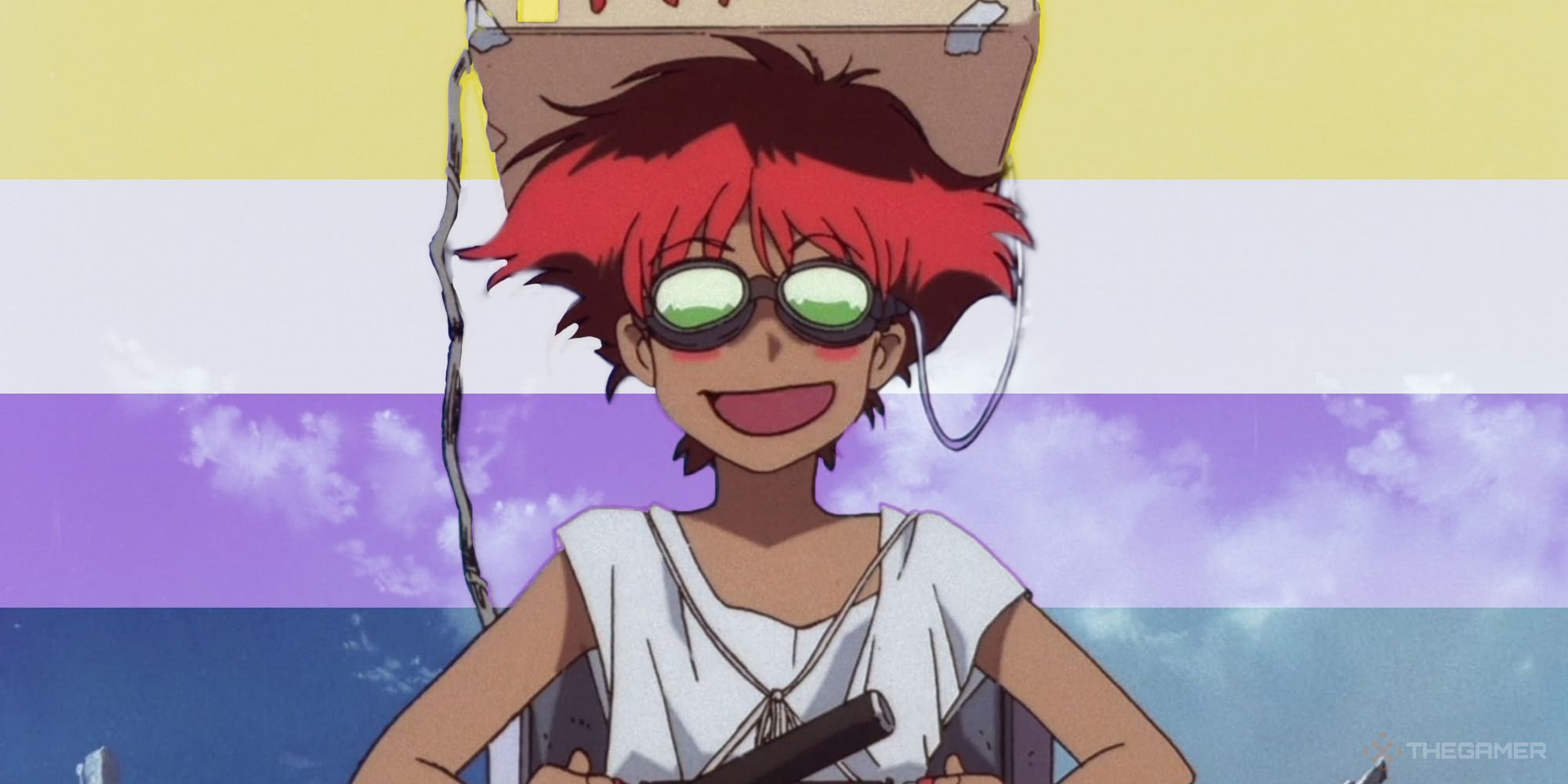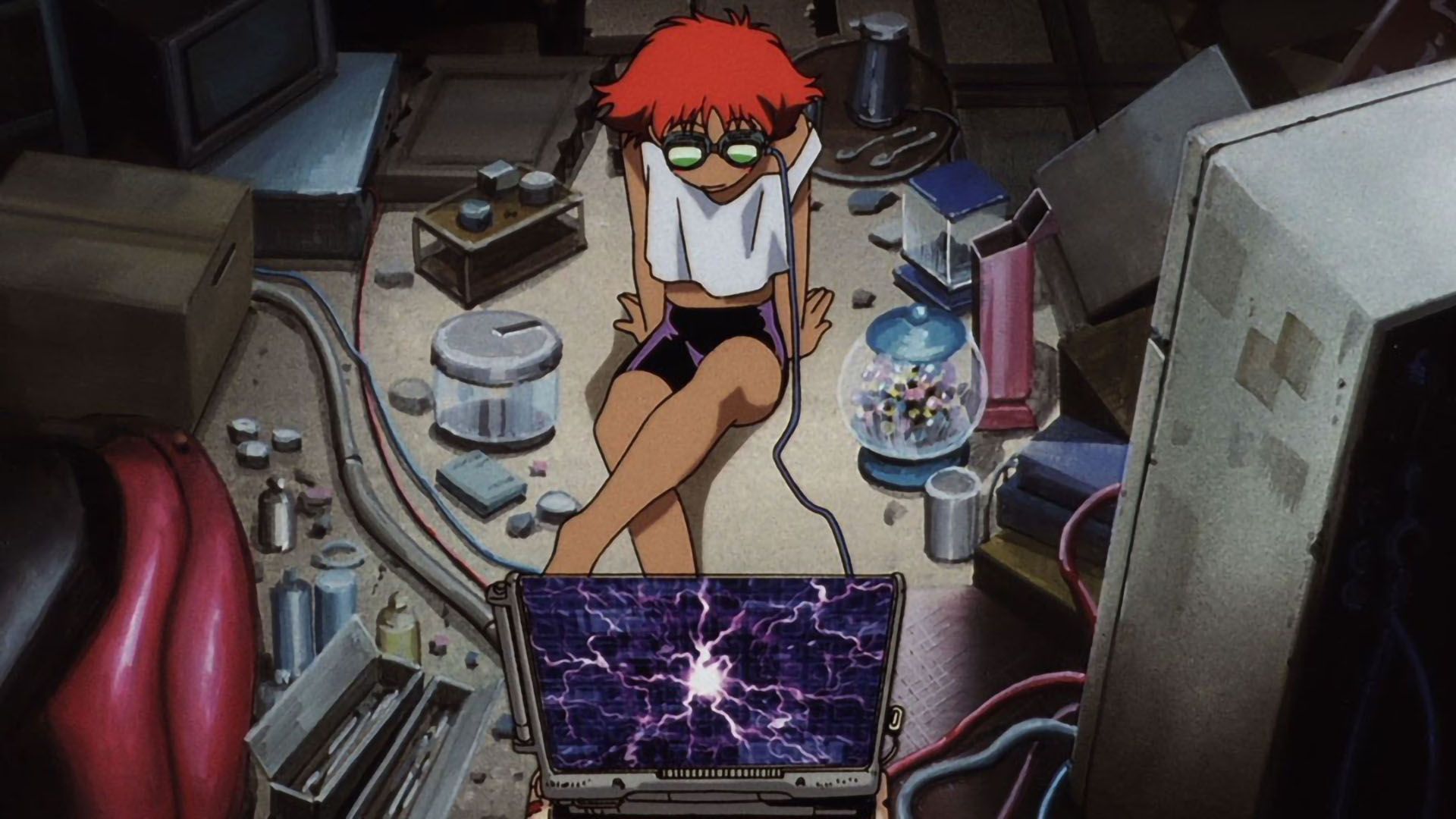The live-action take on Cowboy Bebop from Netflix already looks fantastic. Well, as good as a show can from a few select images of its main characters. But when it comes to Western adaptations, it manages to capture the charm and personality of its iconic source material far more than most - despite complaints about Faye’s look, brilliantly batted away by actor Daniella Pineda - and I hope this potential translates over to the finished product. If it ends up being rubbish, well at least we can savour the moments of excitement that came ahead of its release. But I have faith, especially with the talent involved and knowing that series creator Shinichiro Watanabe is involved as a creative consultant.
However, one element of the live action adaptation has me puzzled - and that’s Ed. The eccentric child prodigy is a master of hacking, able to delve into computer networks to save the gang on a number of occasions. While they seldom speak, instead expressing themselves through zany movements and physical interactions, Ed possesses a personality that makes them integral to the world of Cowboy Bebop. Their sex is alluded to as female by a number of characters, including Faye Valentine, but their physical appearance and general mannerisms occupy a territory you could easily classify as androgynous, while their name is typically masculine. If they do happen to pop up in the Netflix show, I hope this mystery is maintained. Even their full name - Edward Wong Hau Pepelu Tivruski IV - should remain untouched.
Cowboy Bebop is a show that has stood the test of time largely thanks to its sense of style, and its ability to depict a believable vision of the future with a society that operates on social and economic principles that make perfect sense in the grand scheme of things. Stacey Henley recently wrote about the show’s depiction of poorness and how it helps the ensemble cast feel timeless. While they might seem like extraordinary people, they remain slaves to the system, having to perform random jobs for slivers of cash to keep themselves fed and clothed. All of them come from different backgrounds, but they find common ground in an existence that goes against the system that seeks to underpin them.
For 1995, Ed’s non-sexualised appearance was a breath of fresh air in the world of anime. Their bright red hair, flat chest, and basic outfit often has them being mistaken for a boy throughout the show, an identity that is further exemplified by their love for computers, hacking, and delving into the digital space. These aren’t conventionally feminine things to be associated with in the world of anime, and placing a character like this up against Faye Valentine is so stark it’s obscene. But I adore them, and their androgynous appearance and willingness to abandon gender norms has made them a non-binary icon of sorts, whether it was intentional or not. Neon Genesis Evangelion was painting teenage characters like Asuka Soryu Langley and Rei Ayanami as symbols of femininity around the same time, but Cowboy Bebop paints Ed as exactly who they are, and that’s a goofy kid.
In today's landscape, Ed would shine as a gender neutral character, allowing character development to focus on their abilities and backstory as opposed to who they are as a person and what generic boxes they must strive to slot themselves into. Sadly, judging from everything we've seen of the show's first season from Netflix and whispers about the casting process, there's a strong likelihood that Ed has been written out of the narrative entirely. I understand why to an extent, they’re a rather outlandish character with a youthful appearance and range of expression that only comes alive in the world of animation. Take that into reality and you lose something, and perhaps too much to accommodate the compromise being made. We've seen similar concessions made in other properties as the source material is toyed with to match a new medium, whether it be Netflix's own Death Note or the awful Dragonball Evolution, and Cowboy Bebop has achieved this transition better than most, but losing a character so integral still stings. Casting Ed would be difficult enough, let alone ensuring they look and feel like they belong in the real world.
The Netflix show won’t be the same without them, and I hope the production team is aware of this omission and seeks to incorporate elements of their character into the landscape even if Ed isn’t there to support them. Their relationship with adorable corgi Ein is precious, and now the little canine won’t have a friend by their side to vibe with while the others are out murdering losers to bring home the bacon. Ed was introduced in a world where gender neutral characters weren’t common, especially in anime, so viewers took this androgynous appearance and incidental betrayal of gender norms and clung onto it. Now society has moved on,
Cowboy Bebop can make that definition more concrete, allowing it to become a meaningful example of representation without fundamentally changing Ed’s character or drawing attention to it in a way that dilutes what really matters. Ed is a great character, and if we see them in the medium of live-action, I hope it’s done right. Who knows, perhaps the marketing materials are throwing us off the scent and they’re being deliberately hidden, hiding a surprise away for fans who might not expect such a thing. Fingers crossed!



